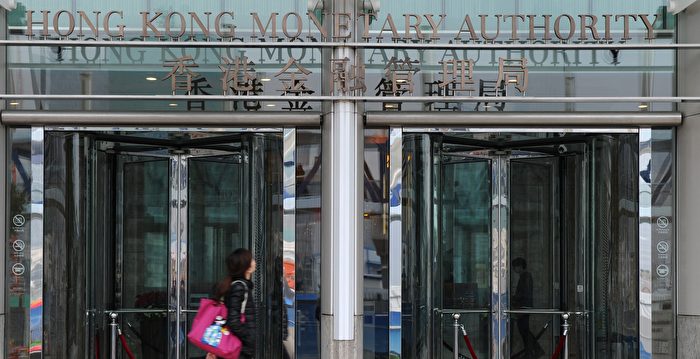[The Epoch Times, July 10, 2022](Reported by Li Siqi and Wang Jiayi, reporters from The Epoch Times) On July 4, the RMB and the Hong Kong dollar were adjusted from a currency swap agreement (swap line) to a standing swap agreement. The post-agreement is valid for a long time and does not need to be renewed. While CCP officials say the adjustment will help Hong Kong’s status as a financial center, professionals see “nothing good” for the Hong Kong dollar.
On the fifth anniversary of the launch of “Bond Connect” in the bond markets of China and Hong Kong, the Central Bank of China and the Hong Kong Monetary Authority (HKMA) announced two new financial policies. One is the establishment of a standing swap agreement between the RMB and the Hong Kong dollar. In addition to long-term validity, the swap scale has been expanded from 500 billion yuan (about 75 billion U.S. dollars) to 800 billion yuan (about 1.2 trillion U.S. dollars). If calculated in Hong Kong dollars, the swap scale has expanded from 590 billion Hong Kong dollars to 940 billion Hong Kong dollars. This is the first time the Central Bank of China has signed a standing swap agreement for RMB.
The second is to launch a “swap link” between China and Hong Kong. “Swap Connect” is an institutional arrangement that facilitates foreign investors to participate in the financial derivatives markets in China and Hong Kong. Financial derivatives include futures and options, such as treasury bond futures. The common feature of financial derivatives is margin trading. As long as a certain percentage of margin is paid, the full transaction can be carried out, that is, financial derivatives trading has leverage effect.
Under Hong Kong’s linked exchange rate system, the standing swap agreement has increased the amount of RMB and Hong Kong dollar swaps by RMB 300 billion, which means that China’s dollar resources that can be invoked by exchanging Hong Kong dollars have increased by $45 billion.
The HKMA announced on July 7 that the official foreign exchange reserve assets at the end of June were US$447.3 billion, a decrease of US$17.7 billion from the end of May. The upper limit of the standing swap agreement between the HKMA and the PBOC is about US$120 billion, that is, about 27% of Hong Kong’s current foreign exchange reserve resources that China can use by exchanging Hong Kong dollars.
“Swap through” will be launched in 6 months. According to the website of the HKMA, “Northbound transactions will be opened initially”, that is, transactions for foreign investors to invest in China.
Regarding the establishment of a standing swap agreement between the renminbi and the Hong Kong dollar, Xie Tian, an expert on China issues and a tenured professor at the University of South Carolina’s Alken School of Business, told The Epoch Times, “For China, it has increased access to foreign exchange and access to the international market. But for the Hong Kong dollar, it reduces the international character of the Hong Kong dollar, which eventually leads to the Hong Kong dollar becoming more and more like the renminbi, slowly losing its role as an international currency and reducing the credit of the Hong Kong dollar.”
The linked exchange rate system began on October 17, 1983, and stabilized the exchange rate of the Hong Kong dollar to the US dollar between 7.75 and 7.85 through the automatic interest rate adjustment mechanism and the commitment to fulfill the exchange guarantee. The HKMA calls the linked exchange rate system “the backbone of Hong Kong’s monetary and financial stability”.
The swap agreement between RMB and Hong Kong dollars started in 2009. Professor Xie Tian said that in fact, when China trades with other neighboring countries, there are also currency swap arrangements, such as between China and Russia.
Today, the currency agreement between China and Hong Kong has been adjusted to a standing exchange. Professor Xie Tian believes that this is due to the CCP’s demand for foreign exchange, that is, to obtain foreign exchange through Hong Kong dollars and to connect with other hard currencies to meet the needs of China’s imported goods and foreign exchange. Yes, but “nothing good” for HKD. Hard currency refers to the currency with good international credit and stable currency value.
Editor in charge: Lian Shuhua
